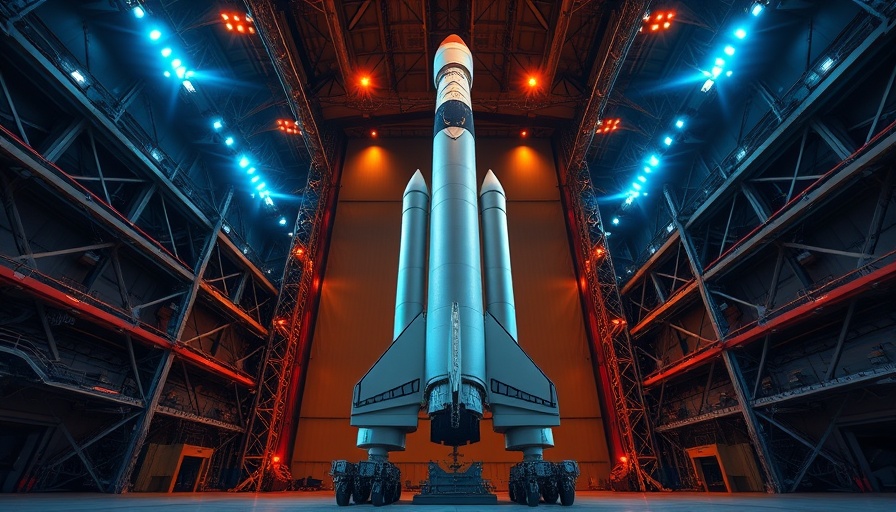
Can the U.S. Keep up in Space Innovation Amidst Budget Cuts?
As lawmakers convene to discuss the future of space exploration, a troubling reality has emerged: the United States risks being outpaced by China's ambitious lunar plans. Recent hearings highlighted significant concerns regarding NASA’s Artemis program, which has hit considerable delays—putting American astronauts' return to the Moon at risk and prompting fears that China could establish itself as a dominant force in space exploration.
China’s Ambitious Lunar Goals
China is on track to land its astronauts on the Moon before the U.S. can achieve the same feat, with plans to complete this ambitious goal by the end of the decade. China's recent tests of its "Lanyue" lunar lander and next-generation astronaut capsule have moved the country closer to its lunar aspirations. These efforts make China's timeline a point of serious concern for U.S. lawmakers, who assert that whoever establishes a presence on the Moon first will shape the future of lunar exploration.
The Fragile State of NASA
The current state of NASA shows signs of distress, primarily due to funding uncertainties and political fluctuations. Budget cuts proposed by the Trump administration have threatened NASA’s footing in this high-stakes race. Former administrator Jim Bridenstine pointed out how the agency suffers from fluctuations in priority and focus, leading to a chaotic environment. The potential for slashing NASA’s budget could derail scientific projects crucial to the Artemis program, stalling any hope of American presence on the Moon.
Impacts of Delayed Technology
NASA's inability to develop essential hardware for lunar missions compounds these issues. For example, the agency's reliance on SpaceX for a Human Landing System variant underscores the precariousness of their lunar ambitions. The commercial space industry, while innovative, presents risks, especially if it fails to deliver timely results. As Bridenstine cautioned, “Unless something changes, it is highly unlikely the United States will beat China’s projected timeline.” This sentiment emphasizes the stakes involved—success in space exploration equates not only to national pride but also to international influence.
The Role of International Partnerships
Amidst budget speculation and administrative changes, there is a call for the U.S. to secure its alliances with international partners. If the United States were to fail in its attempts to reestablish a lunar presence, partners may seek collaborations with nations such as China, which could further diminish the U.S.'s standing in global space exploration. Mike Gold, president of aerospace manufacturer Redwire, warned that “The countries that get there first will write the rules of the road,” underlining the broader implications of these space endeavors.
What Small Business Owners Should Know
The developments in space exploration do not just impact astronauts; they have ramifications for small business owners as well. As innovation in technology continues at an unprecedented pace, there are emerging markets and opportunities in sectors such as satellite communications, data analytics, and aerospace manufacturing. The investments made in moon missions, and space technology, can lead to private sector growth and potential partnerships for small businesses. Understanding these connections will position entrepreneurs to leverage upcoming trends and technologies.
Calls to Action for the Future
As the situation unfolds, there is a crucial need for advocacy. Small business owners who are keen on staying informed and engaged in this ongoing narrative should consider supporting initiatives that promote national investment in space exploration. Not only is this about maintaining global competitiveness, but it also represents a frontier ripe for technological advancements that can foster economic growth.
Conclusion: The Race to the Moon is a Matter of National Interest
As America stands on the brink of a renewed race to the Moon, the challenges facing NASA—and consequently, the strength of U.S. interests in space—cannot be underestimated. The interplay between government budgets, technological advancements, and international partnerships will ultimately shape this narrative. Small business owners can find both inspiration and caution within these developments. Now is the time to pay attention and engage with these critical issues in the space exploration sector.
 Add Row
Add Row  Add
Add 




Write A Comment